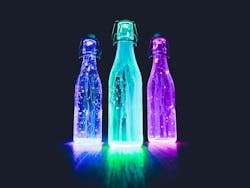Washington state has put forth a proposal to ban water bottling companies from tapping spring-fed sources.
The proposal is one of several efforts to protect local groundwater, reported the Washington Post.
Bottling companies are essentially taking their water for free, depleting springs and aquifers and then packaging it in plastic bottles and shipping it for sale, according to local activists.
“I was jolted to the core to realize the depth and breadth and magnitude of how they have lawyered up in these small towns to take advantage of water rights,” said Washington state Sen. Reuven Carlyle, who sponsored the bill. “The fact that we have incredibly loose, if virtually nonexistent, policy guidelines around this is shocking and a categorical failure.”
Lawmakers in Michigan and Maine also have filed bills to restrict the bottling of groundwater or tax the industry, reported the Washington Post. Local ballot measures have passed in Oregon and Montana to restrict the industry as well.
The Washington state legislation would not keep companies from buying and reselling tap water, however.
Industry leaders who opposed the legislation believe it has the potential to affect employment.
“This legislation would prevent any community from having these jobs or having a project in their area,” said Brad Boswell, executive director of the Washington Beverage Association. “We think these issues are best dealt with on a project-by-project basis.”
For instance, residents in Randle, Washington worried about a large industrial plant and a proposed Crystal Geyser operation last year.
The company’s plan was to pump 400 gallons a minute from springs on the site, depleting the local aquifer and drying up wells, reported the Washington Post.
A leaked email revealed the company’s plan to sue the nearby subdivision in response to neighbor opposition and then conduct an underground public relations campaign to gain support for the project.
In fact, Crystal Geyser pleaded guilty to storing arsenic-contaminated wastewater at a California facility, illegally dumping the water into a sewer after facing authorities.
Local activists in California, Oregon, Michigan and Florida allege they have been targeted by big bottlers, according to the Washington Post.
